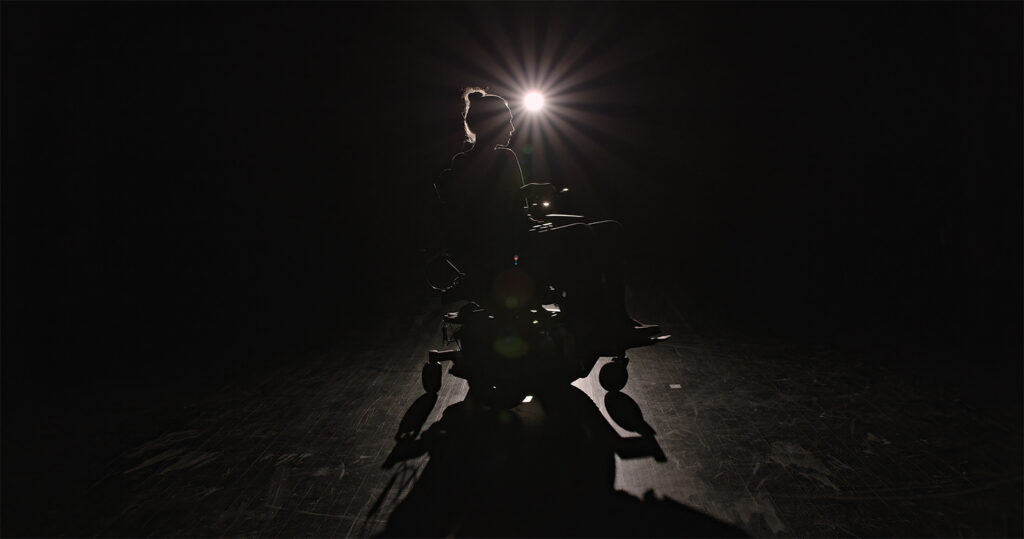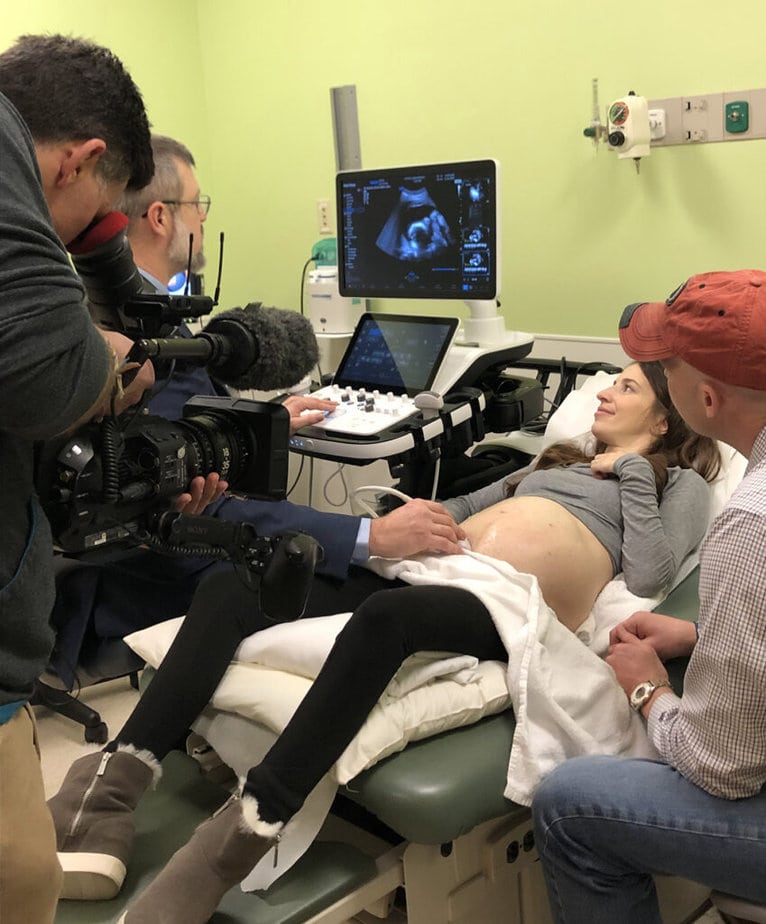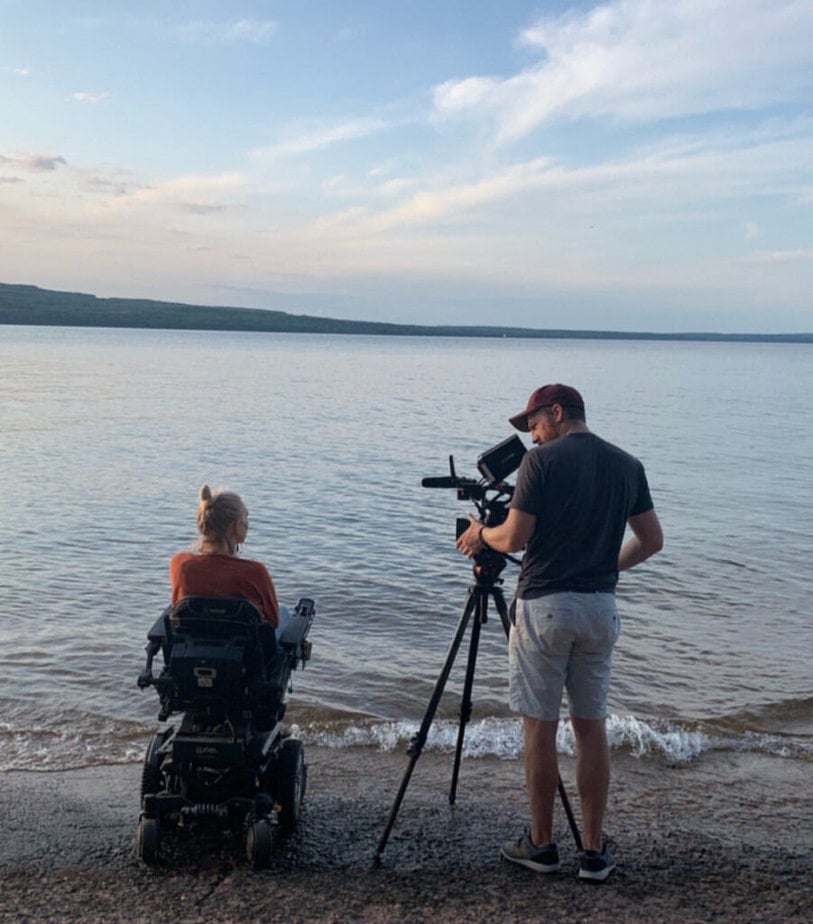
[ad_1]

A rising selection of wheelchair customers are getting at the back of the digital camera and developing documentaries which might be airing on PBS, profitable at movie gala’s or even incomes Oscar nominations.
New, extra inexpensive era, increasing media retailers and a content-craving public are some of the explanation why documentary filmmaking has turn out to be extra obtainable than ever. We spoke to a few wheelchair-using filmmakers with various levels of revel in who purpose to entertain, teach the hundreds, and encourage others with disabilities to inform their tales and bust myths held via nondisabled audience. Disclaimer: No cringeworthy inspiration porn was once created within the making of those motion pictures.
Dani Izzie knew there was once an target audience for her tale and really believed others may take pleasure in seeing it documented on movie, however she additionally knew how simply all of it may move incorrect. “I’ve a sensational tale, like the best clickbait: ‘Quadriplegic girl offers delivery to twins,’” she says. “However I don’t need it to be sensationalistic. I wish to struggle the unfairness in opposition to girls with disabilities turning into oldsters. … We need to spoil thru this ableism.”
Izzie, a C5-6 quadriplegic, have been approached via a casting director of truth TV displays and presented a good-looking amount of money to record her being pregnant in change for relinquishing the unique rights.

“They’re my kids. I would like some possession. You’ll’t simply purchase me,” she says, explaining why she rejected the be offering. “There was once no make it possible for they had been going to get the incapacity narrative proper. I used to be being concerned, from what I’ve noticed on TV and movie, they had been going to truly fuck it up.”
Izzie held out sooner than in the end deciding to make Dani’s Twins with a filmmaker identified for documentaries with a social affect. It helped that he was once a private good friend and promised her the liberty to inform her tale her means.
As Izzie’s being pregnant advanced, cinematographers started filming her and her husband, Rudy, of their West Virginia house. Then got here Covid. No person sought after to go back and forth, and nobody sought after to reveal Izzie to greater well being dangers all over her being pregnant. “The professionals did a shoot sooner than my child bathe, then the whole thing close down. It was once in the course of the pandemic. We couldn’t even do fundraising,” she says.
As a result of there’s no pause button on being pregnant, Izzie and her husband changed into the digital camera workforce, utilizing smartphones and a virtual digital camera. Izzie advanced from being the topic of the movie to its manufacturer.
In spite of having no revel in as a filmmaker, the exchange got here naturally to her. Being at the back of the digital camera made it even more uncomplicated for Izzie to verify her tale emphasised the normalcy of residing lifestyles with a incapacity and steer clear of the “overcoming all odds” storyline that nondisabled filmmakers fixate on in motion pictures about incapacity.
“I center of attention on concrete answers and determine it out like another new mother or father,” she says. “With a spinal wire damage, I truthfully suppose it makes me a more potent mother or father. I know the way to organize for large demanding situations. What issues is what you’ll give your kids emotionally, bodily and mentally.”
The 40-minute movie tackles many problems distinctive to incapacity and being pregnant, whilst additionally overlaying health facility journeys, the pandemic and, after all, the eventual delivery of Izzie’s two wholesome women, Lavinia and Giorgiana. It premiered in Might 2022 at Mountainfilm Competition in Telluride, Colorado, and has been at the movie pageant circuit whilst the group searches for a distributor.
Izzie encourages other folks with disabilities to check out documentary-making. She says the bottom line is to succeed in out to other folks within the trade, ask questions and get started telling your tale. She hopes that the movie, and her outstanding function in making it, will lend a hand teach others. “I did this to enlarge disabled parenting,” she says. “Pregnant disabled girls are matter to hate speech. Numerous instances persons are judgmental or biased in opposition to other folks with disabilities having children.”

Kelsey Peterson’s full-length documentary, Transfer Me, supplies a candid take a look at quite a few uncooked topics: her father’s terminal sickness, his struggles together with her C6 spinal wire damage, her analysis into invasive however perhaps life-enhancing scientific procedures, and her choreographing and acting in a dance undertaking for the degree.
Thru sweat, tears and numerous earthy language, the movie strikes between all of those subjects whilst additionally exploring Peterson’s evolving dating together with her personal incapacity. Since being launched in fall 2022, the movie has performed at 8 movie gala’s and aired as a part of PBS’ prestigious Unbiased Lens collection. Those are heady accomplishments for a first-time co-director, and much more so while you believe how other the overall product is from what Peterson began in 2017.
“I had no aim of constructing this movie. I filmed a few of it, then noticed the photos wasn’t excellent sufficient and discovered that I wanted manufacturing execs to inform the tale,” she says. After a rotating collection of assistant filmmakers and homemade filming funded via Kickstarter contributions, she in the end introduced on award-winning co-director/manufacturer Daniel Klein. She credit Klein for making a “container of consider” that allowed her to be her prone, truest self.
“My tale is set self-discovery. It’s a wild factor to find that whilst you’re in a wheelchair, you continue to have internalized ableism from our tradition.”
The group implemented to an open name for documentary submissions from nonprofit Unbiased Tv Services and products and won $350,000 in investment plus a pipeline to PBS. ITVS finances and items documentaries on public tv, new media tasks on the net, and the weekly Unbiased Lens on PBS. Peterson stated the fortify from ITVS became her undertaking from a private enterprise to a high-caliber movie.
Filming the documentary helped Peterson rediscover the inner artist and storyteller she had misplaced post-SCI. She was once a a hit dancer previous to her damage and liked expressing herself thru dance. She says her “internalized ableism” made it tough for her to peer herself as a dancer after her damage.
“The artist in me got here out in documentary shape, and it felt like a reblooming of myself. I may really feel it in post-production and the enhancing room. This pretty unraveling. With the ability to translate myself.”
Taking note of Peterson speak about the filmmaking procedure, it’s transparent the revel in had a profound impact on her. “After I began, I wasn’t even ok with the phrase ‘incapacity,’ or claiming it,” she says. “I realized the significance of storytelling in your personal non-public enlargement.”
Peterson advises would-be documentarians within the incapacity neighborhood to “be courageous” and succeed in out to professionals in manufacturing, investment and broadcasting. She suggests operating with grant writers, or a minimum of discovering more than one excellent editors to study grant packages and ship high quality comments. “Fundraising is difficult sufficient as it’s, and also you don’t wish to installed all this effort and want that you might want to’ve accomplished extra, or really feel such as you wasted your time,” she says.
Peterson’s movie took place so organically that, taking a look again, she wouldn’t do a lot of the rest otherwise. “My tale is set self-discovery. It’s a wild factor to find that whilst you’re in a wheelchair, you continue to have internalized ableism from our tradition,” she says. “I really like my frame,” she provides. “I don’t want to be fastened. However I’m truly keen on imaginable restoration and if it might give me other varieties of excitement or give me extra time.”
James LeBrecht, Co-Director, Crip Camp
If there was once a Mount Rushmore of disabled filmmakers, James LeBrecht can be on it. The longtime incapacity rights activist and founding father of Berkeley Sound Artists has accomplished sound design paintings for over 145 motion pictures — together with as re-recording mixer for Transfer Me — with a selected center of attention on documentaries. The New York local, who has spina bifida, co-directed Crip Camp, the award-winning 2020 documentary in regards to the delivery of the incapacity rights motion.
LeBrecht’s interest for movie and documentaries impressed him to co-found Filmmakers with Disabilities — Documentary, a nonprofit that seeks to extend visibility, fortify, get right of entry to and alternatives for deaf, disabled and neurodiverse filmmakers. FWD-Document is modeled after a hit startup movie advocacy teams introduced via and for girls of colour.
LeBrecht stated that FWD-Document, funded via the Ford Basis, Viewpoint Fund, Box of Imaginative and prescient and Jonathan Logan Circle of relatives Basis, has created a non-public database of other folks with disabilities who paintings in lots of facets of filmmaking. The database lets in productions that wish to be inclusive to get referrals for hiring trade execs. In affiliation with filmmaking nonprofit Document Society and supported via Netflix, FWD-Document revealed “A Toolkit for Inclusion & Accessibility: Converting the Narrative of Incapacity in Documentary Movie,” to be had as a loose obtain on its web site.

has advanced. “Thank goodness there are more uncomplicated
access issues than there have been 30 years in the past.”
FWD-Document could also be considering past the filmmaking procedure, pushing for extra accessibility at movie gala’s, from screening amenities to after-parties. LeBrecht notes that offers for financing, distribution and collaboration get accomplished at gala’s, and if they aren’t obtainable to all, the taking part in box isn’t point for disabled documentary makers. To this finish, FWD-Document created a Movie Match Accessibility Scorecard, a at hand tick list to influence movie gala’s clear of personal screenings which might be inaccessible, or after-parties held at lounges which might be downstairs, upstairs or are another way inaccessible.
With non-public reminiscences of the way issues had been, he appreciates the growth the trade has made on together with other folks with disabilities. “Thank goodness there are more uncomplicated access issues than there have been 30 years in the past. With the ability to use an iPhone, having the ability to do a podcast, having the ability to do edits — the associated fee issues are a lot not up to they was once,”
he says.
Stumbling blocks stay relating to disabled technical ability progressing at the movie occupation ladder. “Access-level positions in movie are on-set manufacturing assistant(s). For those who don’t have staying power and agility, it’s an absolute deal breaker. The perspective is ‘for those who’re now not prepared to sleep underneath your table, I don’t need you right here since you’re now not devoted.’ That roughly drive will kill other folks,” LeBrecht says. “Simplest in need of individuals who can do a espresso run for 12 other folks and paintings 10 days instantly — that’s unattainable for a unmarried mother or father, for economically deprived other folks — it’s bullshit. It has not anything to do together with your true worth.”
LeBrecht needs extra trade leaders preferred the price other folks with disabilities convey to their paintings. “As an individual with a incapacity, if I restrict my time, it’s now not restricting my creativity,” he says. “I will be able to organize time truly smartly. The trade has to modify to create openings for all other folks with creativeness and willpower and creativity.”
Realizing that Crip Camp’s good fortune opened doorways, LeBrecht has leveraged his renown to develop FWD-Document. Through partnering with corporations like NBCUniversal, he hopes to stay the trade headed in the appropriate path.
“NBCUniversal is making an attempt to expand some displays about incapacity. We’re operating with them and seeking to get research to keep in mind that incapacity is part of range, fairness and inclusion — that you simply should upload an A for ‘Get entry to’ to DEI,” LeBrecht says. “As a result of mainstream motion pictures nonetheless have a difficult time seeing past the tropes, I feel there’s a nice want for unbiased motion pictures made via other folks with disabilities. You merely have to inform your tale from an original perspective.”
Assets
Dani’s Twins: danistwinsfilm.com, IG: DanisTwinsFilm
Transfer Me: movemedoc.com, IG: movememovie
Crip Camp: cripcamp.com, IG: CripCampFilm
FWD-Document: fwd-doc.org, IG: FwdDoc
[ad_2]